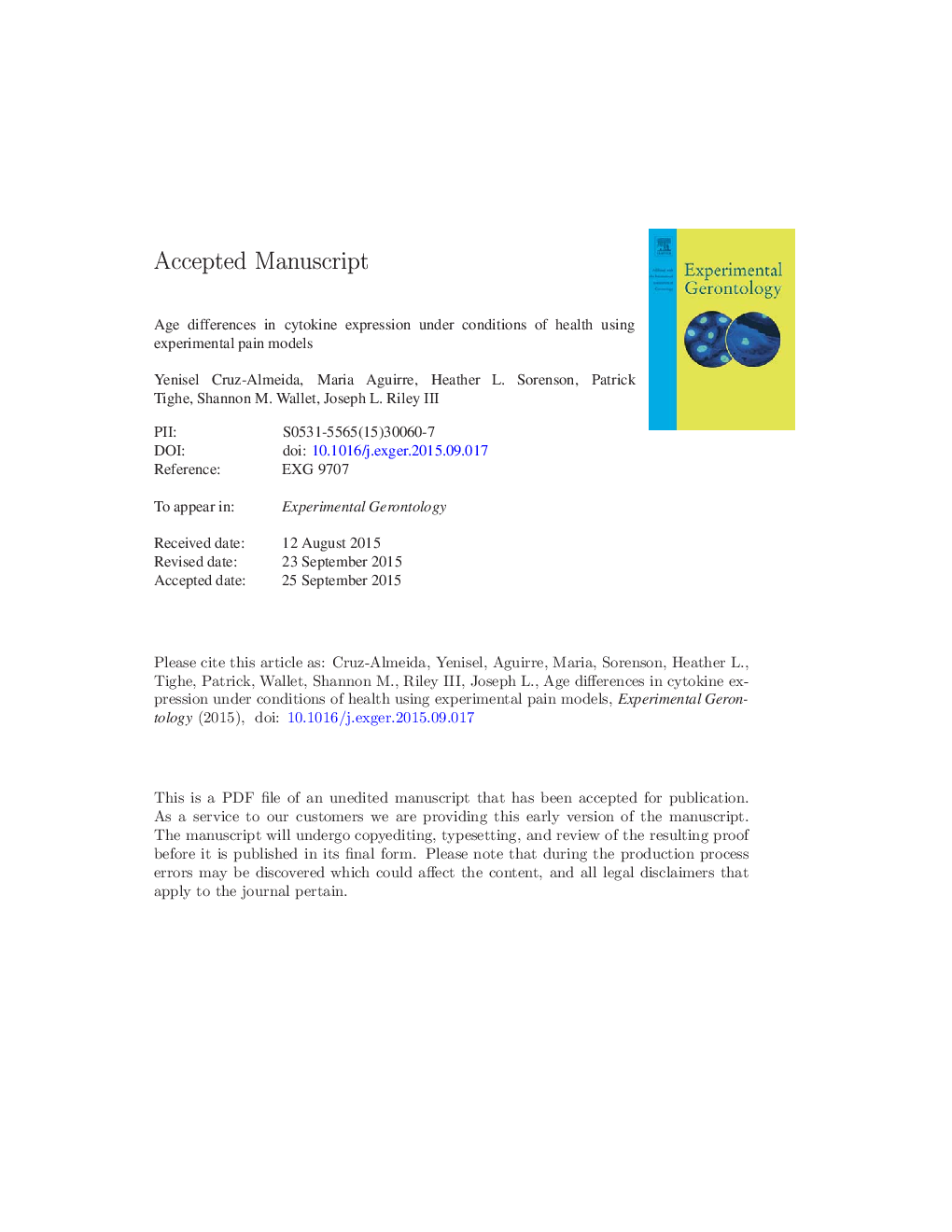| Article ID | Journal | Published Year | Pages | File Type |
|---|---|---|---|---|
| 8263028 | Experimental Gerontology | 2015 | 27 Pages |
Abstract
Older adults are at an increased risk to develop frequent and prolonged pain. Emerging evidence proposes a link between immune changes and pain, which is consistent with the inflammation theory of aging and the increased incidence of age-related diseases. This study tested the hypothesis that older adults show greater immune responses to experimental pain compared to younger individuals. Study subjects (8 younger and 9 older healthy adults) underwent 3 experimental sessions using well-validated human experimental pain models: the cold pressor task (CPT), focal heat pain (FHP), and a non-painful thermal control. Blood was collected through an indwelling catheter at baseline and 3, 15, 30, 45, 60, and 90 min post-stimuli administration. Pro-inflammatory cytokines (TNF-α IL-6 and IL-8) peaked at the same time points for both groups, with greater elevations among older subjects for TNF-α and IL-8 in both pain models and elevations in IL-6 only for CPT. Anti-inflammatory cytokines (IL-4, IL-5, and IL-10) generally peaked later for the older subjects, with increased elevations for FHP but not the CPT. These data are consistent with the assertion that age-related immune system dysregulation may account for the increased prevalence of pain in older adults.
Related Topics
Life Sciences
Biochemistry, Genetics and Molecular Biology
Ageing
Authors
Yenisel Cruz-Almeida, Maria Aguirre, Heather L. Sorenson, Patrick Tighe, Shannon M. Wallet, Joseph L. III,
